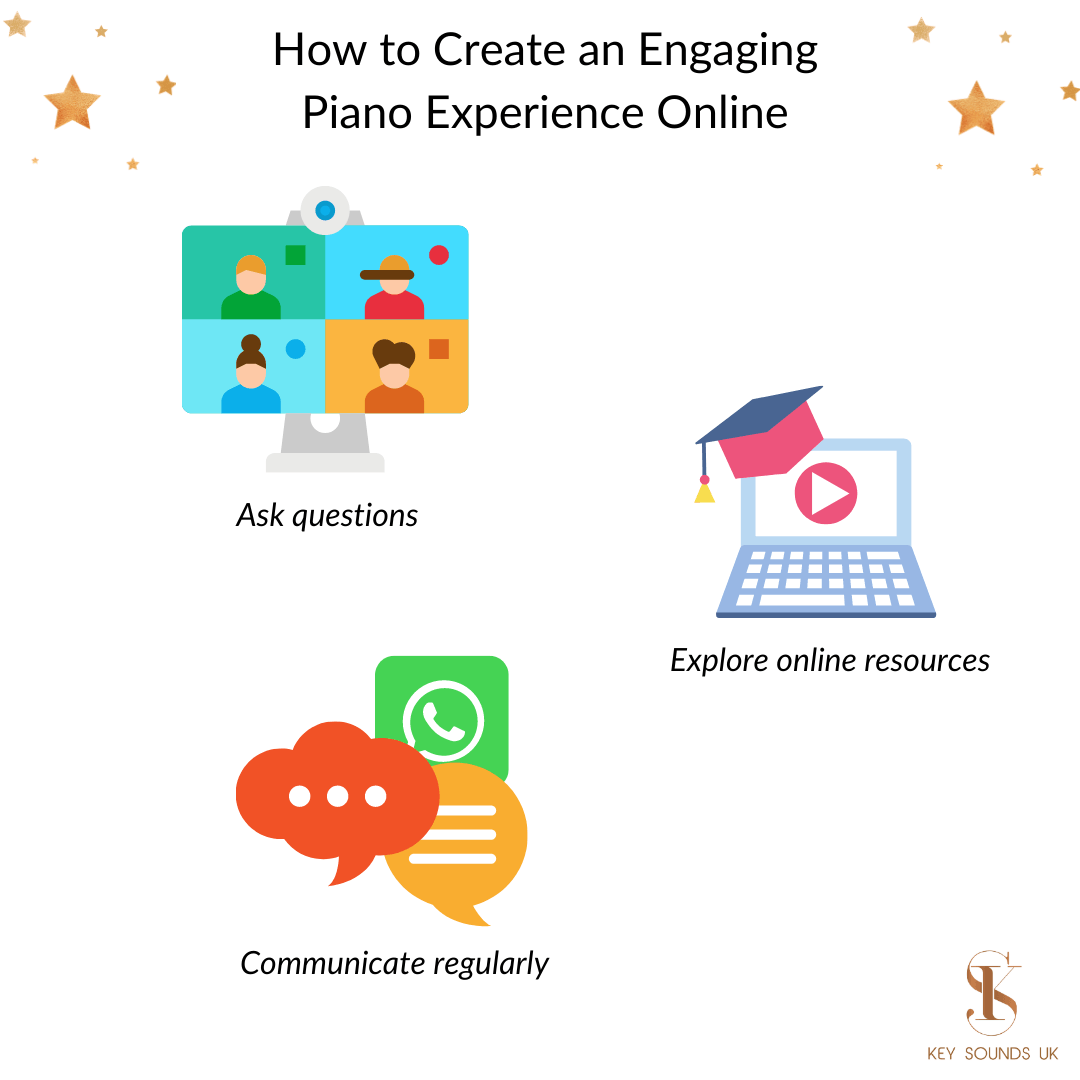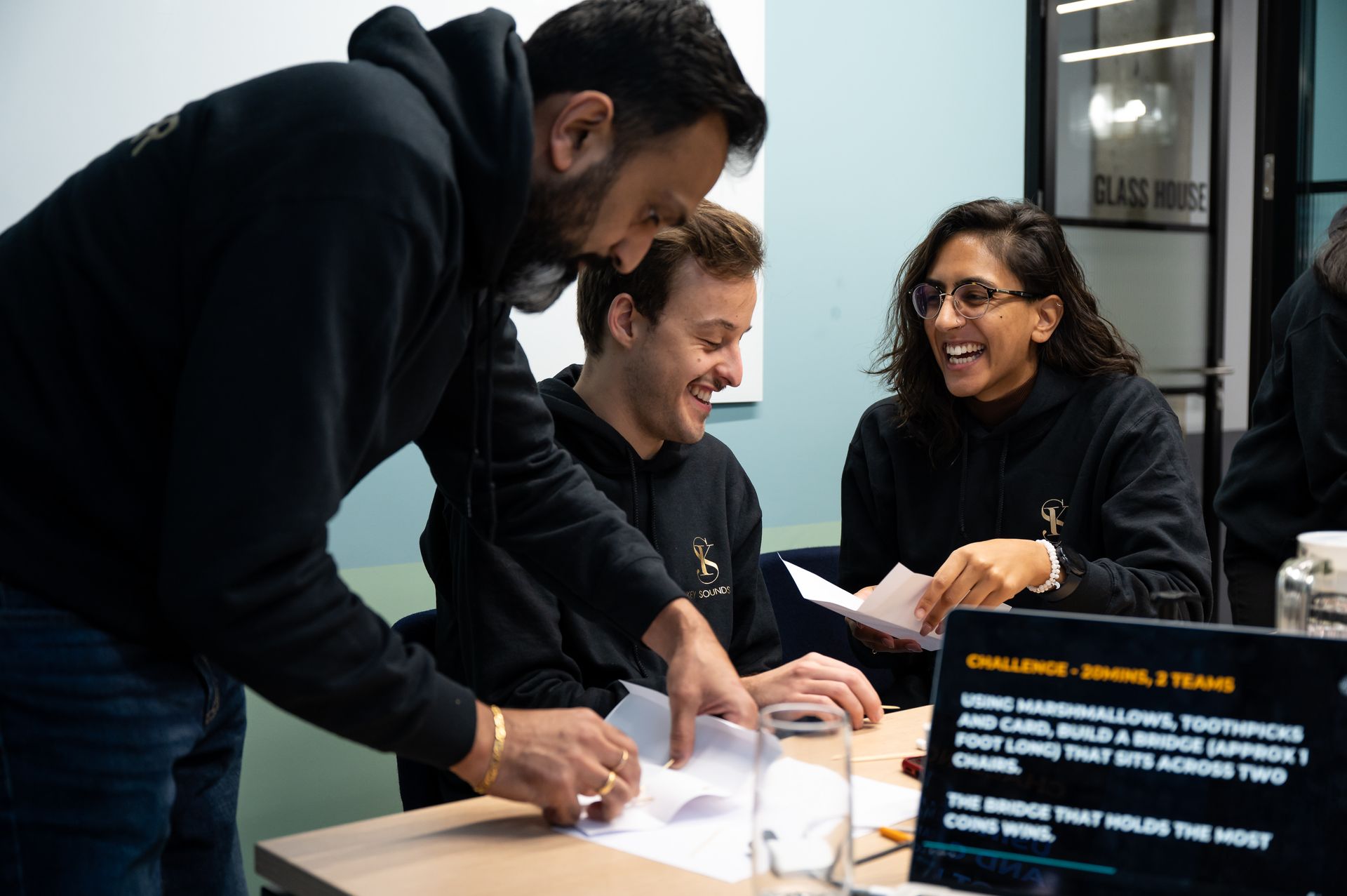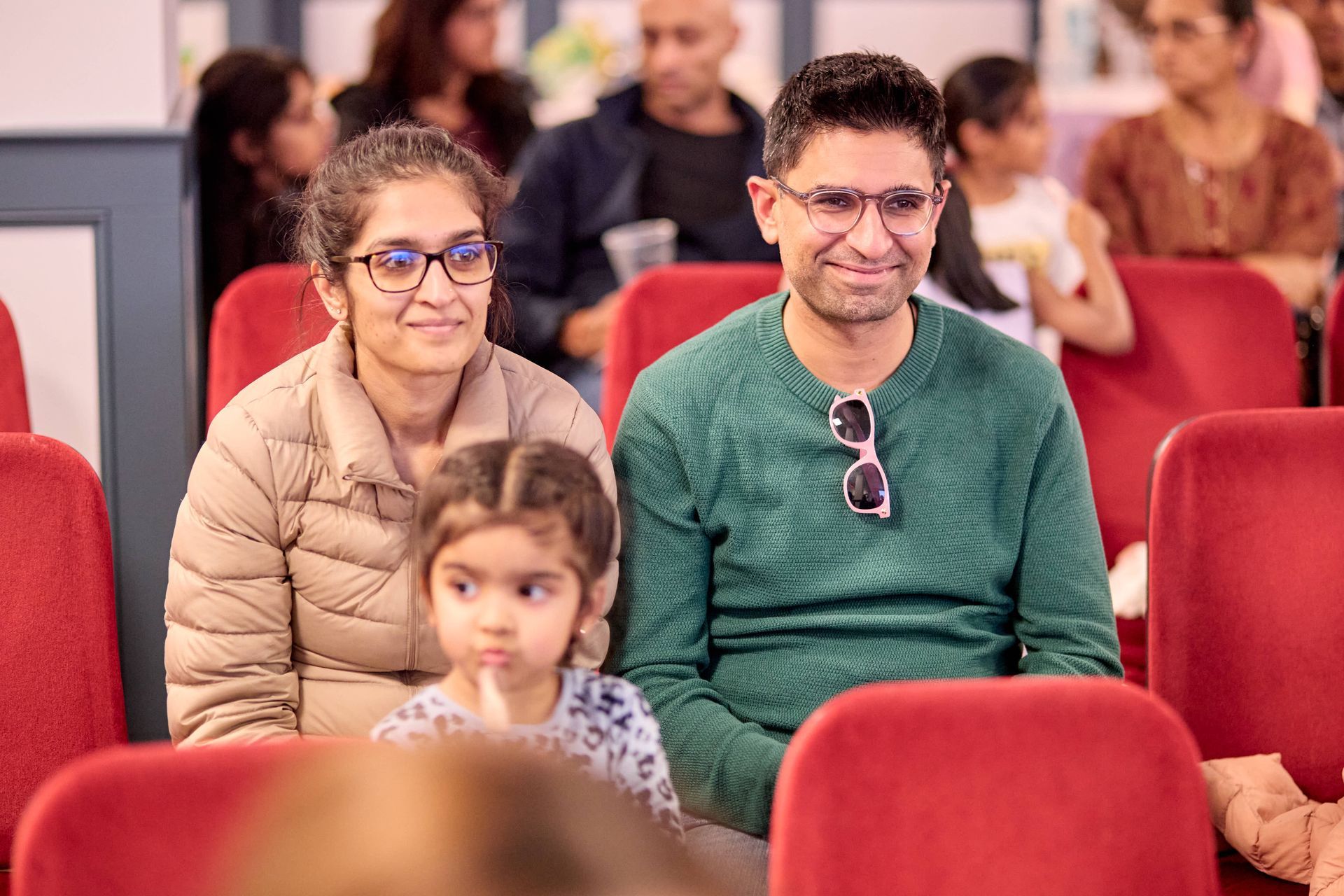Creating an Engaging Piano Experience Online

Here are our top three tips on creating an engaging piano experience online:
1) Ask questions
To the educators who have shifted to online lessons, you may find that you have to communicate more frequently about the music and techniques in greater depth than you would have to in an in-person lesson. Be prepared to ask questions whilst using more hand gestures to keep your students engaged.
Piano students, we recommend you ask your teacher if you are unsure about a specific technique or element of your music.
2) Explore online resources
For the educators out there, in order to create a more inclusive approach to our virtual lessons, we have sent activity sheets prior to the lesson or used the screenshare feature on Zoom.* This means both you and the student can see the activities and work through this together.
To the piano students, explore the online videos or activities which are available to you. These may be sent by your teacher or you can research for these online. Another resource you can use is to watch performances of the piece you are learning on YouTube.
*https://support.zoom.us/hc/en-us/articles/201362153-Sharing-your-screen-content-or-second-camera
3) Communicate regularly
Whilst there is no face-to-face interaction, creating an online platform or messaging system can allow both the teacher and student to check-in with one another in between classes. This can particularly be useful if a student has a question or requires feedback on their playing. We highly recommend using videos or voice notes where appropriate to create a more engaging experience for the student.
To the piano students, we recommend you stay in touch with your teacher in-between lessons. Take a look at the best time and method to communicate with them. This can allow you to show them what you are working on or ask them a question if you are stuck on a particular piece or topic.
To find out more, feel free to get involved in our latest project “The Habits of the Top Performing Piano Players”, fill out our survey:
https://docs.google.com/forms/d/13kfjQbsNwdOeJlnPF6cp5HfOm-o45xubyo9qSJRTrAM/edit. For your chance to win a Nintendo DS Lite or a £50 Amazon Gift Voucher.



All Rights Reserved | Key Sounds UK

